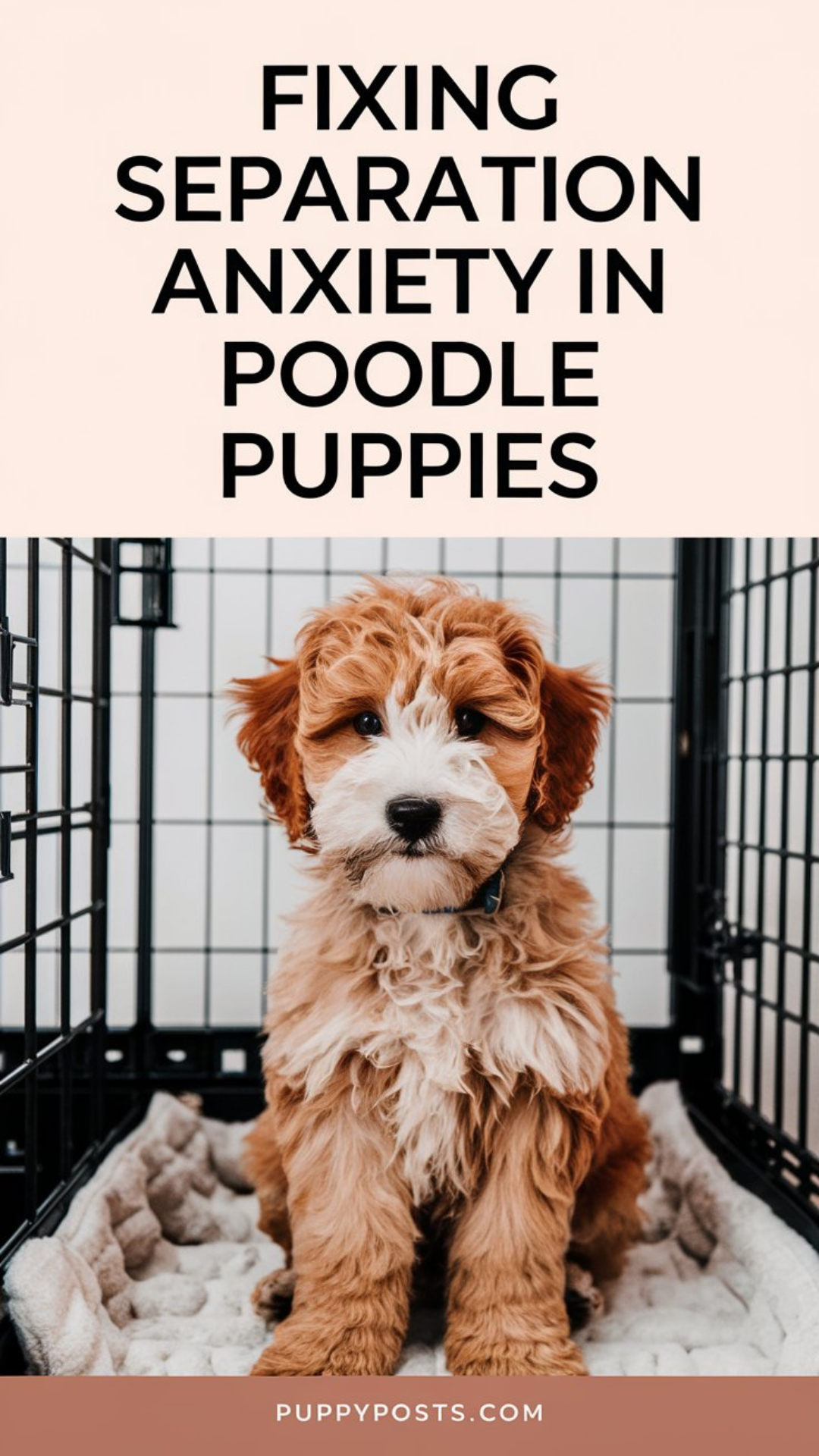Fixing separation anxiety in Poodle puppies
Alright, let’s get this straight. Poodle puppies are smart, loving, and full of energy. But when separation anxiety hits, it turns even the sweetest pup into a nervous mess. I’ve spent over a decade as a vet and running a sanctuary for stray dogs and cats, so I know this issue all too well.
Fixing separation anxiety in your Poodle puppy isn’t a quick fix. It takes patience, consistency, and calm leadership. No yelling, no shortcuts—just steady, deliberate work.

Why Poodle Puppies Struggle with Separation Anxiety
Poodles bond tightly with their humans. When you leave, they don’t just miss you—they get anxious, fearful, and stressed. This anxiety can cause whining, barking, destructive chewing, or even accidents inside. You need to show your puppy that alone time is safe and temporary.
Step 1: Create a Safe and Comfortable Space
Set up a crate or a gated area with your puppy’s bed, toys, and water. This spot should be their safe haven when you’re not around—cozy, secure, and inviting.
Step 2: Practice Gradual Departures
Don’t leave your puppy alone for hours right off the bat. Start with short, calm absences—just a few minutes—and gradually build the time up. Keep your hellos and goodbyes low-key to avoid spiking their anxiety.
Step 3: Tire Them Out Before You Leave
Poodles are smart and energetic. Make sure your puppy gets plenty of physical and mental exercise before you step out. A tired puppy handles being alone better.
Step 4: Reward Calm and Independent Behavior
When you come back and your Poodle puppy is calm, reward that with praise and treats. Positive reinforcement is your best tool to teach your pup that being relaxed while alone pays off.
Step 5: Avoid Punishing Anxiety-Driven Behavior
If your puppy whines, barks, or chews because of anxiety, don’t punish. That only makes them more scared and damages your relationship. Stay calm, patient, and keep focusing on positive reinforcement.
Step 6: Get Professional Help if Needed
If your Poodle puppy’s anxiety doesn’t improve or worsens, get help from a professional trainer or veterinary behaviorist. Early intervention can save you both a lot of stress down the road.
Bottom Line
Fixing separation anxiety in Poodle puppies takes calm, consistent leadership. Build a safe space, ease into alone time, exercise your pup, and reward the good behavior. Stick with it, and your Poodle puppy will learn to feel secure even when you’re not around.







